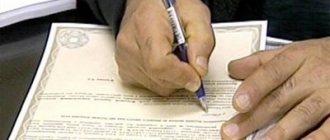Home / Services and prices / Legal services / Tax disputes /
Often representatives of the tax inspectorate behave assertively, taking advantage of the fact that citizens of the Russian Federation have practically no understanding of the country’s Tax Code. This means they don’t know all the laws, references, and amendments to them. Thanks to this, representatives of the Federal Tax Service do not always make legal decisions, imposing fines, additional burdens, penalties, etc. on the enterprise.
If a legal entity is confident that the tax authorities are wrong, it can and should fight for its position. This must be done with the help of a competent lawyer by filing tax claims in pre-trial proceedings.
Procedure for filing a complaint
A complaint to a higher tax authority (FTS) must be submitted through your tax office. The tax office is obliged to transfer it to its destination within 3 days. It is advisable to prepare the complaint in three copies: for the Federal Tax Service, for the inspection and for yourself (your copy will be stamped with acceptance).
Within these same 3 days, the tax office is obliged to eliminate the violation of your rights. The inspectorate will report this to the higher tax authority within 3 days from the date of elimination.
"Audit PRO" guards your interests
has been offering consulting services in Moscow, the Moscow region and Zelenograd since 1995. By protecting the interests of our clients, we win in arbitration courts and in pre-trial proceedings with the help of accumulated experience and deep theoretical knowledge in the field of jurisprudence. We provide our clients with a professional approach to business:
- An in-depth analysis of the existing dispute with the study of all the company’s papers and conducting the necessary examinations;
- Competent, from the point of view of the letter of the law, preparation of a claim to the tax office;
- Control over tax accounting of claims for the enterprise in order to minimize risks to the Federal Tax Service;
- Supporting the proceedings until the client wins the dispute;
- Consulting clients on all issues of tax legislation.
"Audit Pro" is always on the client's side!
Deadlines for filing a complaint
A complaint to a higher tax authority can be filed within one year from the day you learned or should have learned about a violation of your rights.
For a decision to prosecute or a decision to refuse to prosecute that has entered into force, the deadline for filing a complaint is one year from the date of such decision.
An appeal may be filed before the date of entry into force
the decision being appealed.
If you do not agree with the decision of the Federal Tax Service, within 3 months from the date of the decision on the complaint, you can file a complaint (appeal) with the federal executive body authorized for control and supervision in the field of taxes and fees (Federal Tax Service Central Office).
The decision of the Federal Tax Service to prosecute and the decision to refuse to prosecute for committing a tax offense cannot be appealed.
If, for good reason, the deadline for filing a complaint is missed, this deadline, at the request of the person filing the complaint, can be restored by a higher tax authority.
Benefits of filing a claim
For a legal entity, pre-trial settlement of a dispute with the Federal Tax Service has the following advantages:
- Filing a claim is less formal and does not require lengthy proceedings. Pre-trial dispute resolution is always easier than arbitration;
- The financial side of the issue when filing a claim is also more profitable for the applicant than paying state fees in court, etc.
- Resolving a dispute out of court takes 1–2 months. The trial can drag on for up to a year or more.
When filing a claim/complaint with the Federal Tax Service, it is worth enlisting the support of a competent lawyer. The specialist will identify the weaknesses of the tax authorities in the applicant’s case and conduct a competent counterattack.
Types of complaints
Appeal against acts that have entered into force
tax authority, actions or inactions of its officials is called
a complaint
.
Appeal against a decision that has not entered into force
tax authority to prosecute or a decision to refuse to prosecute for committing a tax offense is called
an appeal
.
While the complaint is being considered, do not expect that the execution of the act or the commission of the action by its official will be suspended. It is possible to suspend the decision of the tax inspectorate only in the event of an obligation to pay the debt.
In this situation, you need to submit an application to suspend the execution of the tax authority’s decision simultaneously with the complaint. A bank guarantee is attached to the application to suspend the execution of the appealed decision. In a bank guarantee, the bank undertakes to pay a sum of money in the amount of tax, fee, insurance premiums, penalties, and fines on the appealed decision.
Results of the complaint consideration
Based on the results of consideration of the complaint (appeal), the higher tax authority:
- leaves the complaint (appeal) unsatisfied;
- cancels the act of the tax authority;
- cancels the decision of the tax authority in whole or in part;
- cancels the decision of the tax authority completely and makes a new decision on the case;
- recognizes the actions or inactions of tax officials as illegal and makes a decision on the merits.
Bank guarantee
The requirements established by clause 5 of Art. 74.1 Tax Code of the Russian Federation. The requirements are:
- the bank guarantee must be irrevocable and non-transferable;
- the bank guarantee should not contain an indication that the tax authority will submit to the guarantor documents that are not related to the disputed issue;
- the validity period of the bank guarantee must expire no earlier than six months from the date of expiration of the established deadline for fulfilling the obligation to pay tax;
- The amount for which the bank guarantee is issued must be sufficient to pay taxes and penalties.
Will a bank guarantee always help to suspend a decision?
Within 5 days from the date of receipt of the application for suspension of execution with a bank guarantee, the Federal Tax Service will make a decision:
- suspend execution of the inspection decision (until the day the decision is made on the complaint of the Federal Tax Service);
- refuse to suspend the execution of the inspection decision.
The basis for refusal will be the failure of the bank guarantee to meet the established requirements.
The Federal Tax Service will notify you of the decision in writing within 3 days.
Read on topic:
The client must take care of the exclusion of the two guarantees
Paying taxes through a problem bank: when the obligation is considered unfulfilled
On providing the opportunity to send a bank guarantee to the tax authority in electronic form
How to write a claim to the tax office sample
Complaint to the tax office (FTS) in 2021 - what it is, what legislation is regulated and how to file it. Methods of presentation and main points.
If a violation of tax laws is discovered, this can be reported through a complaint to the tax service.
It can be filed by any person whose rights have been violated. After the appeal has occurred, you need to wait for the consideration and response to the filed complaint.
Any person whose rights have been violated can file a complaint with the tax service. It can also be left by a person who has discovered a violation of tax laws.
For example, a competing company hides part of its income from the tax service or there was a violation of the law by tax officials.
Most often, individual entrepreneurs or managers of large commercial firms write complaints to the tax authority due to:
- disagreement with the conclusions of the commission after the inspection;
- incorrect tax assessment;
- unlawful application of sanctions in the form of fines or penalties;
- refusal to take into account the benefits provided by law to a person carrying out entrepreneurial activities;
- refusal to return surplus after tax payment;
- coercion to pay fees or other taxes that are not enshrined in Federal legislation. This paragraph applies to both legal entities and individuals.
Once the complaint has been filed, the tax office is given only 1 month to consider it, after which they must send a notice of the decision or extension for a period of no more than 15 days.
The complaint must be filed within a year after the discovery of violations of the law.
There are cases when a complaint to the tax office may not be accepted if:
- more than a year passed from the moment of the violation to the filing of the complaint, and the deadlines for appeal were missed;
- the subject of the appeal was not specified or the stated demands were not substantiated;
- there is information, which is confirmed by official documents, that this type of complaint has already been accepted for consideration by higher tax authorities or officials;
- information was received that the court decision on the issues set out in the complaint had entered into force.
The following complaints are also not subject to consideration:
- with unreliable or incomplete information, without which it is impossible to conduct an inspection;
- if they contain any errors or are written in illegible handwriting;
- containing profanity and threats.
That is why it is very important to correctly express your thoughts when drawing up a complaint yourself.
In order to eliminate errors, you can seek help from an authorized legal entity.
If necessary, the person who filed the complaint may appeal the decision. To do this, it is necessary to leave an appeal within ten days after receiving the results of the consideration of the complaint.
Otherwise, the decision will enter into legal force. You have 1 year to appeal a decision of the tax authority that has already entered into force.
After considering the appeal, the higher authority may:
- do not satisfy the filed complaint, leaving the previously adopted decision of the tax court without any changes;
- fully or partially change the decision made, invalidate it or make a new one;
- invalidate the decision of the tax authority and close the proceedings in this case. The person who sent the complaint must choose the next steps independently, based on the results issued by the higher tax authority.
Definitions
The complaint must be submitted in writing. It is a document that is aimed at taking measures to appeal documents or actions, as well as inactions, of the tax authority.
This type of complaint must be made in writing, in compliance with all the rules for its preparation. A sample complaint against the tax inspectorate can be downloaded here.
Purpose of the document
A complaint is sent to the tax service in order to challenge the illegality of the actions of the tax authorities and indicate their failure to comply with certain requirements.
For example, it can be used to punish tax service employees who perform their job duties poorly, which includes failure to meet deadlines for the preparation and review of documents.
For example, if an employer pays an employee “black” wages, the employee can contact the tax service, pointing out this fact, and demand to punish the employer, as well as achieve “white” wages.
The right to file a complaint with the tax service, either as an individual entrepreneur or as a legal entity or individual, is enshrined in Article 138 of the Tax Code of the Russian Federation. You can also learn more about what a complaint is and why it may be needed.
The right to appeal a decision is enshrined in Article 137 of the Tax Code of Russia. You can learn more about the persons against whom you can write a complaint and where it should be filed in Article 139.
All deadlines and decisions that can be made based on the results of verification of the complaint are set out in paragraphs 2 and 3 of Article 140.
Appeals to the Federal Tax Service of Russia
A complaint will only be accepted if it is properly drafted. It can be signed either by the injured person or by a person representing him.
The complaint must include:
- full details of the organization or authorized person to whom the complaint will be filed, address indicating the region;
- full details of the address of the person filing the complaint or the entire organization. An individual must indicate his gender, passport details, citizenship information, place and date of birth, as well as full name;
- contact details, including telephone number, email or fax address, if available;
- TIN. If the request comes from an individual, then he has the right not to indicate this data;
- full name of the body, organization or specific official against whom the complaint is being written;
- all demands of the person filing the complaint, with reference to legislative acts in force in Russia;
- all the circumstances that led to the filing of the complaint, as well as documents supporting them;
- a complete list of documents attached as evidence.
Only after this can the complaint be sent. It can be:
- deliver in person to the tax authorities. To do this, the complaint must be drawn up in two copies. One should be left with the tax office, and the second, in which there should be a mark with the date of acceptance of the complaint, with the person who applied;
- send by registered mail with notification;
- leave it on the official website of the Federal Tax Service.
The application must be registered within 3 days. From the day of registration, the countdown of the time for its consideration begins.
How to anonymously write a complaint against an organization that is breaking the law
The Federal Tax Service does not consider anonymous messages. Any person who contacts this service must provide their personal data.
What to write in a complaint
The complaint is submitted in writing and signed by the person who filed it or his representative (a power of attorney is required).
You can file a complaint:
- in person when visiting the tax office;
- through a proxy;
- in electronic form via TKS;
- through the taxpayer’s personal account.
You can attach documents to your complaint that support your arguments.
The complaint must indicate:
- FULL NAME. and the place of residence of the individual filing the complaint or the name and address of the organization filing the complaint;
- the appealed act of the tax authority, actions or inactions of its officials;
- the name of the tax authority whose act, actions or inaction of officials are being appealed;
- the grounds on which the person filing the complaint believes that his rights have been violated;
- requirements of the person filing the complaint;
- method of obtaining a decision on a complaint: on paper, in electronic form via TKS or through the taxpayer’s personal account.
For communication, you can indicate telephone numbers, fax numbers, email addresses and other information in your complaint.
Related document:
On approval of the form of a complaint (appeal) and the procedure for filling it out, as well as the formats and procedure for submitting a complaint (appeal) and sending decisions (notices) on them in electronic form
Sample complaint to the Federal Tax Service of Russia and ways to submit it to the inspectorate
5/5 (2)
You can DOWNLOAD samples of complaints to the Federal Tax Service of Russia using the links below:
How to properly file a complaint
It is customary to write complaints to the tax office if a citizen has observed a violation of the Tax Code of the Russian Federation by his employee, enemy, boss, or competitor.
In addition, you can appeal the actions of tax officials if any violations were noticed on their part.
For such cases, a special complaint form is provided:
- When writing an application, you must indicate in the header the details of the tax office to which the application is sent. To be precise, you need to enter the address and full name of the organization. A little lower, enter the personal data of the submitter (full name, address, TIN);
- if the person filing the complaint is a legal entity, it is worth writing the address of the organization, checkpoint, OGRN, and employee position;
- The details of the violator are indicated a little lower (full name, job, position);
- this is where the header comes to an end, now in the center of the sheet you should write down the essence of the complaint, the claim, what exactly was violated, when, under what circumstances. It is also always welcome to attach laws that prohibit the action committed by the violator. Indicate the date and location of the violation to make it more likely to prove guilt. The complaint should exclude grammatical errors, emotional coloring, any abuse towards the offender, etc. This will distract the inspectors from the essence and reduce your chances of proving anything;
- After completing the description of the conflict or complaint, indicate your requirements and options for solving the problem. An example of such proposals is a request to conduct a check for the employee, take other measures to eliminate violations, and then inform about the result;
- ideally, attach to each claim a link to the law confirming the correctness of your words;
- After filling out the complaint, the filing date and signature are indicated.







